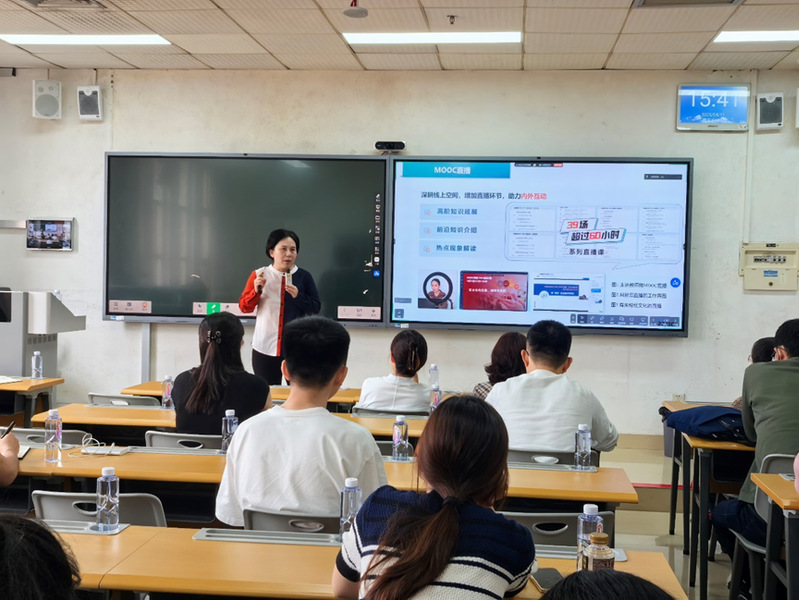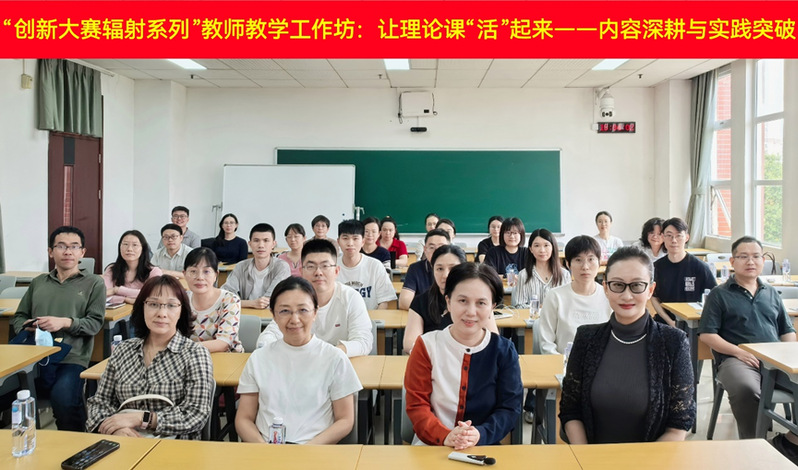- ABOUT JNU
- ADMISSION
-
ACADEMICS
- Schools and Colleges
-
Departments and Programs
- Arts College of
- Chinese Language and Culture College of
- Economics College of
- Electrical and Information Engineering College of
- Foreign Studies College of
- Information Science and Technology College of
- Environment School of
- Humanities School of
- International Business School
- International Studies School of
- Journalism and Communication College of
- Law School
- Liberal Arts College of
- Life Science and Technology College of
- Management School of
- Marxism School of
- Medicine School of
- Pharmacy College of
- Physical Education School of
- Science and Engineering College of
- Shenzhen Tourism College
- Research Institute
- Research Center
- Programs in English
- Majors
- Study Abroad
- Online Learning
- RESEARCH
- CAMPUS LIFE
- JOIN US
Latest News
Teaching Innovation Workshop: Fourth Event Focuses on Bridging Theory and Practice
Author: Wang Wenke, Hu Xiqian
Publisher: Teacher Development Center
Date: April 16, 2025
On April 11, 2025, the Teacher Development Center of the Undergraduate College hosted the fourth session of the Innovation Competition Radiation Teacher Teaching Innovation Workshop. Titled Let Theoretical Courses Come to Life: Deepening Content Cultivation and Breaking Through Practice, the event took place in Room A517 of the Shipai Campus Teaching Building, with online participation from the Zhuhai and Shenzhen campuses.

(Zhang is lecturing.)
Keynote Speaker
The workshop featured Professor Zhang Xiaoxiao from the School of Journalism and Communication, a recipient of the National College Teacher Teaching Innovation Competition award and a prominent figure in the creation of nationally recognized online courses such as Twelve Lectures on New Media Culture and the provincial mixed first-class course Media Culture. The event was moderated by Zhang Mo, Director of the Undergraduate Teacher Development Center.
Highlights of the Workshop
At the outset, Professor Zhang emphasized the significance of theoretical teaching in current educational practices, positioning theory as the foundation of effective learning. She argued that theoretical teaching should not be seen as a burdensome challenge but rather as a collaborative space for teachers and students to exchange ideas and insights. The rapid pace of technological advancement and industrial transformations necessitates curriculum reforms in universities. Additionally, tools like artificial intelligence can significantly enhance the innovative reform of theoretical courses and encourage educators to adopt fresh approaches to teaching. Zhang advocated for a focus on deep content cultivation and the integration of practical applications to enliven theoretical instruction and foster innovation.
Course Construction Example
Using the Media Culture course as a case study, Zhang analyzed the challenges currently faced in theoretical teaching. She illustrated the organic connections within the course through four key areas:
1.Content System Expansion
2.Teaching Space Creation
3.Theme Practice Exploration
4.Evaluation System Reconstruction
Zhang highlighted the critical roles of content and practice in promoting mutual advancement across these areas. She stressed the importance of comprehensive knowledge integration, aligning ideological and political dimensions with academic content. This holistic approach enhances students' understanding, allowing them to grasp both specific concepts and the broader context.
Emphasizing Practical Learning
Zhang noted that practical engagement is crucial in theoretical education, serving as an essential complement to core content. She advocated for project-based learning models that foster student initiative and help bridge theoretical knowledge with real-world applications.
In her closing remarks, Zhang summarized her perspective on teacher development by stating, Sticking to the classroom, growing in the team, and surpassing in competitions represents the optimal pathway for educators.
Following her presentation, attendees engaged in a lively discussion with Professor Zhang regarding the interplay between theory and practice, the challenges of integration, and the efficacy of blending theoretical concepts with practical classroom teaching.

(At the workshop)
This workshop not only highlighted innovative approaches to teaching but also reinforced the importance of collaboration between educators to enhance student learning outcomes in an ever-evolving educational landscape.
NEWS
- About the University
- Quick Links
Copyright © 2016 Jinan University. All Rights Reserved.




